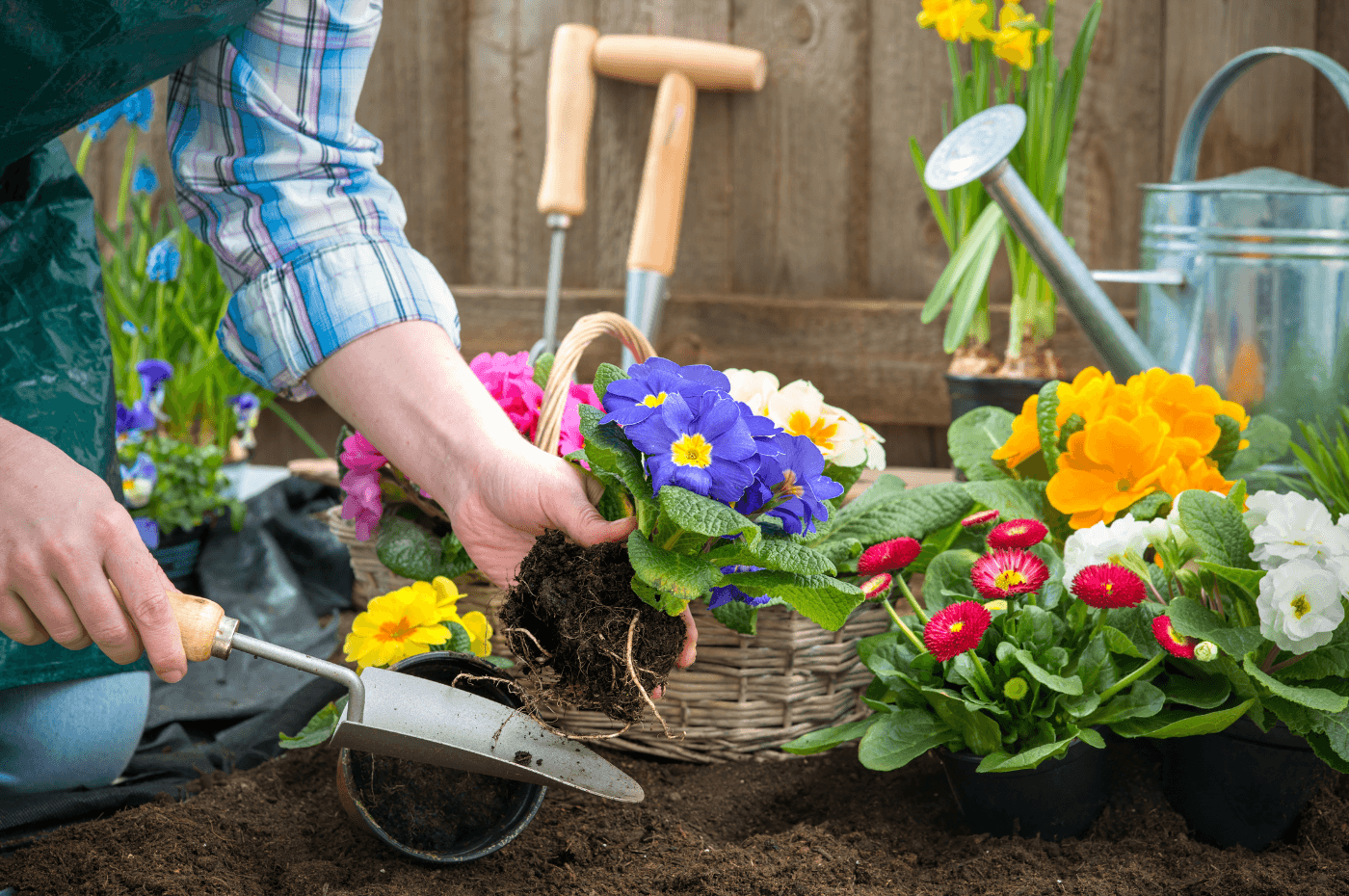Looking to create a spectacular landscape this summer? For a successful garden, it's essential to understand the distinction between annual and perennial plants.
Every year, gardening centers are filled with countless flowers, plants, and shrubs. While it may be tempting to show up and choose your plants based on your favourites, it's far from the best strategy. It's better to have some prior knowledge.
Without further ado, let's examine the differences between annual and perennial flowers. This way, you can better choose those that best suit your needs and landscaping plans.
What is an annual?
Much loved for flower beds and pot arrangements, annual plants have a lifespan of only a few months. They complete their life cycle in a single season. They germinate, grow, and flower just in time for the summer season before dying in the fall when the first frosts arrive.
As the name suggests, annuals need to be replaced every year. This obviously requires a bit more work each spring. But most people also see it as an opportunity to renew the varieties, textures, colours, and nuances in their landscaping.
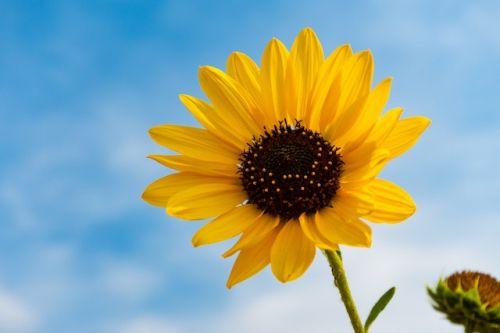
Did you know?
A plant considered an annual here in Quebec may be a perennial elsewhere in the world. They are grown here as annuals due to their sensitivity to cold. They cannot survive our winters but can live year-round in regions with milder climates.
Some varieties of annuals
There is a wide variety of annual flowering plants. Here are a few:
- Canna;
- Cosmos;
- Snapdragons;
- Impatiens;
- Lobelia;
- Petunia;
- Sunflower;
- Zinnia;
- And more.
Most vegetables and herbs also fall into the annual category since they don't survive the winter. This includes:
- Eggplant;
- Basil;
- Cucumber;
- Cilantro;
- Bean;
- Pepper;
- Rosemary;
- Tomato;
- And more.
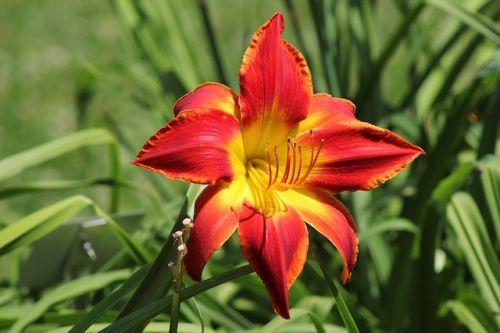
What is a perennial?
In contrast to annuals, perennials withstand Quebec's winter and return each spring. Depending on the species, some perennials have evergreen foliage even in severe cold. Others, whose foliage dies with the onset of frost, regrow from their root system.
Again, depending on the species, perennial plants can bloom in spring, summer, or fall. The flowering, even when fleeting, often extends beyond two weeks, sometimes over a month.
Perennials are grown for both their flowers and their beautiful, sometimes colourful foliage. Having different varieties in your garden allows the landscape to transform with the seasons.
Their lifespan varies depending on the quality of care provided. Some perennials can live between 3 and 5 years, while others have a longer lifespan.
Some varieties of perennials
There is no shortage of varieties of perennials! Among the flowers and foliage, we include:
- Anemones;
- Clematis;
- Daylilies;
- Heuchera;
- Hostas;
- Garden Iris;
- Lupins;
- Daisies;
- Peonies;
- Black-eyed Susans;
- And more.
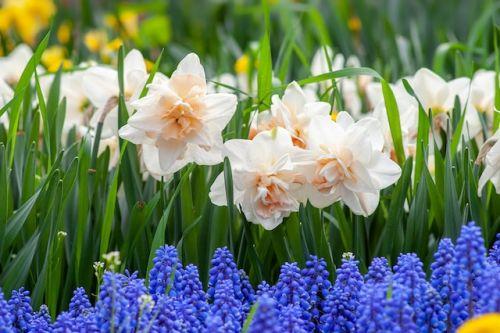
Several bulbs are also perennials, including:
- Crocus;
- Snowdrops;
- Hyacinths;
- Daffodils;
- Snowflakes;
- Tulips;
- And more.
In the category of edible perennials, there are:
- Asparagus;
- Chives;
- Strawberries;
- Mint;
- Rhubarb;
- And more.
Which flowers to choose: annuals or perennials?
Therefore, should you prefer annuals or perennials? The decision is entirely up to you, depending on your preferences and the characteristics of your land (soil type, sunlight level, available space, etc.). For successful landscaping, it's strongly recommended to know your plants well and where you plan to plant them on your property.
Of course, you don't have to limit yourself only to annuals or perennials. You'll even get a better result if you combine both varieties in your garden. Their arrangement will create a more balanced and colourful landscape from spring to fall.
Nevertheless, let's look at the advantages of each of these varieties.
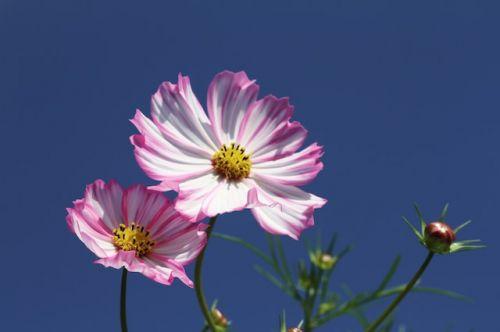
What are the advantages of annuals?
- They come in a wide variety of shapes, colours, and sizes.
- Their abundant flowering lasts almost the entire summer season.
- You don't have to wait for the result. Just buy them in full bloom and plant them.
- They require less maintenance compared to some perennials.
- They can be found at very good prices.
- They allow you to renew the landscaping every year.
- In pots or hanging, they add life to galleries, balconies, and terraces.
- They are a good option for colder regions where the gardening season is shorter.
What are the advantages of perennials?
- They come in a wide variety of shapes and colours, true for both flowers and foliage.
- There is a plethora of species suitable for every corner of the garden (shade, partial shade, sun).
- They are available in a wide range of sizes and heights, from ground covers to species over a meter tall. They add dimension to the landscape.
- They are an excellent investment since they return year after year.
- Some grow or multiply quickly, making them easy to divide and multiply over the years to fill your land or exchange with a neighbour.
- They help ensure the survival of bees and other beneficial insects.
- Some varieties can also be grown in pots.
- Evergreen perennials add some life and texture during the monochromatic period of winter.
Are you looking to buy or sell a house this summer?
XpertSource.com can help you find a real estate expert. When you tell us about your project, we put you in touch with qualified resources for free. Simply fill out our form (it only takes a few minutes) and we will connect you with professionals.
